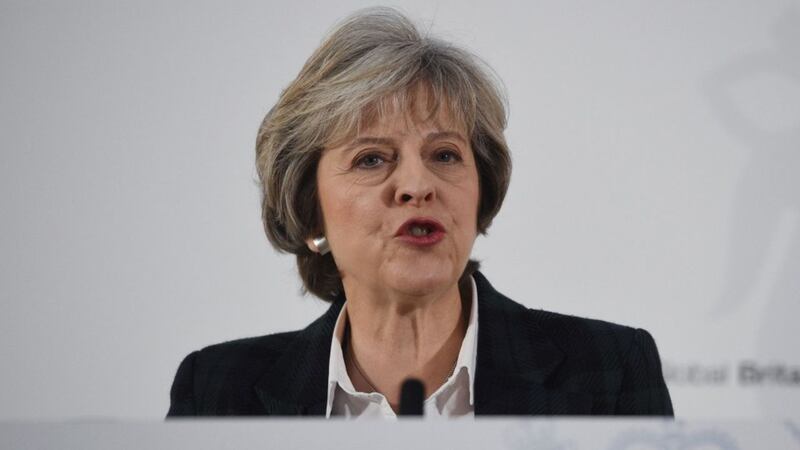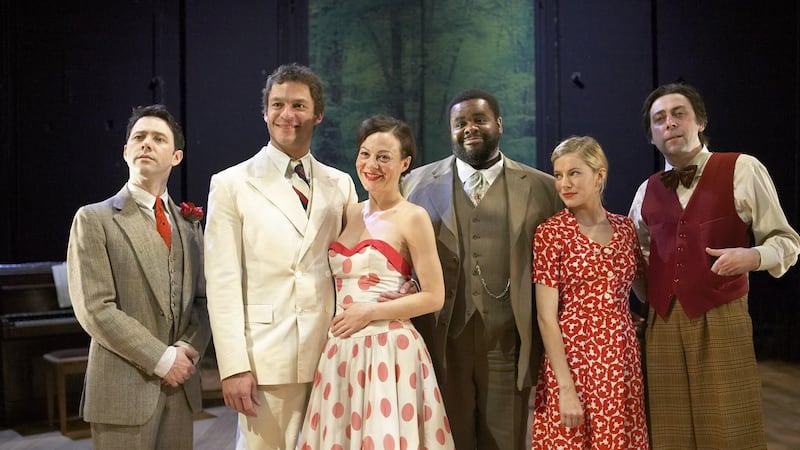Theresa May has piled pressure on the House of Lords not to frustrate the will of the elected Commons by blocking or delaying legislation paving the way for Britain to leave the EU.
In case you missed it, the Prime Minister took the highly unusual step of sitting close to the throne in the crowded chamber as peers began a marathon two-day debate on the Brexit Bill.
Prime Minister eyeballing the Leader of the Opposition. pic.twitter.com/jMq643Xvup
— Stephen Bush (@stephenkb) February 20, 2017
She sat watching intently, just feet away from the chamber’s red benches, as Lords leader Baroness Evans of Bowes Park said the Government had a “strong mandate” from the people and elected MPs to trigger Article 50.Here’s everything you need to know about what’s going on with the Bill at the moment:
Why was May at the House of Lords?
Although technically MPs are not allowed into the second chamber, May is permitted to occupy the spot (she sat in front of the Royal Throne) as a member of the Privy Council.May’s presence in the Lords chamber ahead of two days of debate during the Bill’s first stage in the upper chamber is being interpreted as a visual warning to peers seeking to amend the legislation.She warned earlier: “This Bill is not the place to try and shape the terms of our exit, restrict the Government’s hand before it enters into complex negotiations or attempt to re-run the referendum.”
What’s happening with the Bill?
The European Union (Notification of Withdrawal) Bill has already cleared the Commons unamended with big majorities.A record-breaking 187 peers are scheduled to speak on the Bill’s second reading, with sittings extended both on Monday and Tuesday to allow them all to get in.The Government may find this side of things slightly trickier because it does not have an in-built majority in the Lords and opposition peers are determined to try to amend the legislation during its later stages.The Bill is expected to complete its passage by March 7 – but if peers have made amendments, it will go back to the Commons, where MPs will debate whether to keep those changes or get rid of them.
What’s the reaction been in the Lords so far?
Tory former chancellor Lord Lawson of Blaby was jeered when he rammed home the Government’s message, warning against any “improper” amending of the Bill.But Liberal Democrat leader in the Lords, Lord Newby, pointed out the upper chamber had the power to ask the Commons to think again on any piece of legislation and hoped the Government would accept this. He dismissed accusations that concerns raised in the Lords amounted to opposing the will of the people or obstructing the process.Former EU commissioner Lord Mandelson insisted he did not vote to stay in the bloc because of his pension rights but as “a patriot”. The Labour peer also argued claims the UK would enjoy the same trade benefits after breaking with Brussels amounted to “a fraud on the public”.
What’s happening next?
If peers request amendments, the Bill could end up going back and forth between the Houses until an agreement is finally reached on the final text.This is the most likely stage for the Bill to be held – with time running out for the Government to hit its timetable.However, members in both Houses will be clearly aware that they risk accusations that they’re going against the will of the people if they delay.








